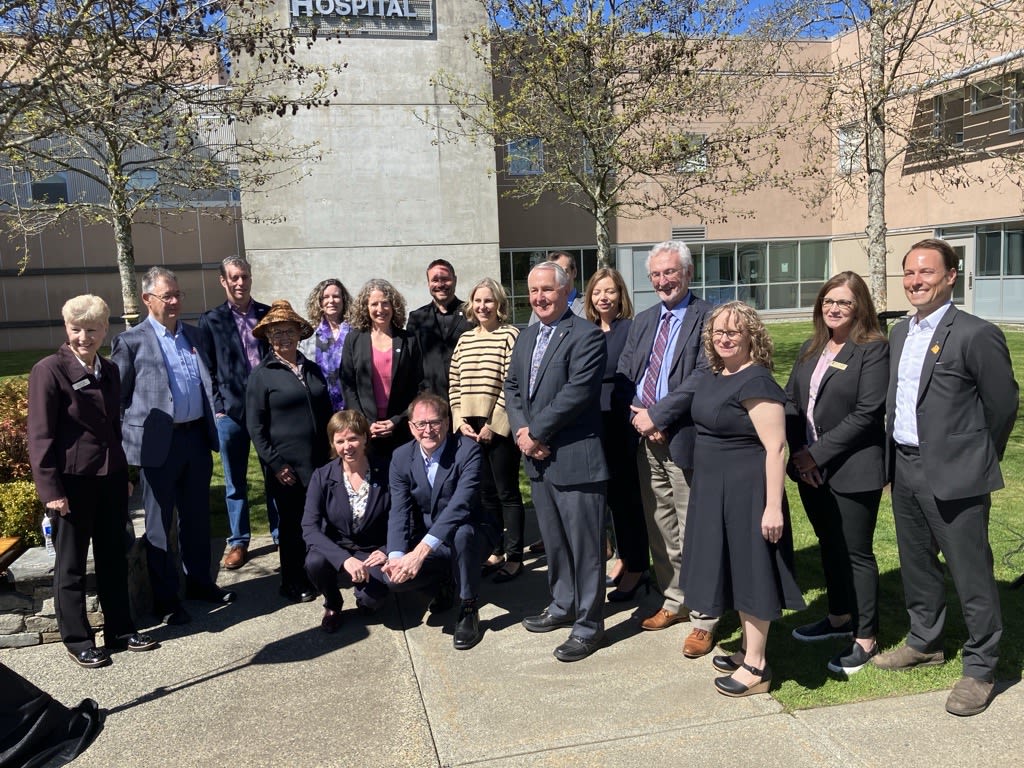VANCOUVER, B.C. – Today, families around the world have answers as to what’s causing a long history of stomach cancer. The international study involved BC Cancer Agency researchers and has discovered the genetic cause of a rare gastric condition that can lead to stomach cancer.
The team, including Dr. David Huntsman, Distinguished Scientist at the BC Cancer Agency and Professor in the Departments of Pathology and Laboratory Medicine and Obstetrics and Gynaecology at The University of British Columbia, and Dr. Intan Schrader, Medical Geneticist with the BC Cancer Agency Hereditary Cancer Program, discovered three extremely rare genetic mutations that cause gastric adenocarcinoma and proximal polyposis of the stomach (GAPPS). The discovery means that, in future, individuals who have a family member with GAPPS will be able to have a DNA test to determine whether they will develop the condition and stomach cancer.

Medical Geneticist,
BC Cancer Agency Hereditary Cancer Program
“This new finding will change the way we test for a very well-known cancer susceptibility gene and has significant implications for how we think about other syndromes known to heighten the risk of cancer and how we clinically screen for the mutations that cause them,” said Dr. Schrader.
The B.C. based work was supported through the BC Cancer Foundation in the hopes that more answers can be found to pinpoint the causes of both hereditary and sporadic causes of the disease, which is the fourth leading cause of cancer death world-wide.
The study was led by Professor Georgia Chenevix-Trench, the head of the Genetics and Computational Biology Department at QIMR Berghofer in Australia and published today in The American Journal of Human Genetics.
On the study’s implications to families impacted by GAPPS around the world, Professor Chenevix-Trench said: “Those who do carry the mutation can be closely screened and can decide whether they want to consider surgery, and those who do not carry the mutation will no longer have to have regular screening.”
The findings also drew connections to a long-known hereditary condition— familial adenomatous polyposis or FAP— known to cause colon cancer. Although increased colon cancer risk has not been a recognized feature of GAPPS, now, Dr. Schrader says, further work is required to determine if smaller families in whom we haven’t had a chance to observe, may have a heightened risk for colon cancer, and conversely if individuals with FAP due to similar mutations of the APC gene have a higher risk of gastric cancer.
Key Facts:
- Gastric adenocarcinoma and proximal polyposis of the stomach (GAPPS) is an extremely rare condition in which the upper part of the stomach becomes carpeted with hundreds or thousands of benign growths, known as polyps.
- In some GAPPS patients the polyps can become cancerous over time.
- Until now, researchers have been unable to identify the biological cause of GAPPS.
- B.C. offers hereditary genetic assessment if there is a strong family history or individual history of many polyps.
- The three mutations discovered are related to a known cancer-gene (APC) but the region of this gene that causes GAPPS was not being captured in current DNA screening tests, or assays.
- APC cancer gene is related to both colon and gastric cancer.
- Translational work is underway to bring this discovery into clinical lab based testing to identify patients with a genetic risk of gastric cancer.
-30-
Media enquiries please contact:
Allison Colina, Communications Manager
BC Cancer Foundation
t. 604-707-5934
e. Allison.Colina@bccancer.bc.ca
The BC Cancer Foundation is the bridge that connects philanthropic support and research breakthroughs in cancer knowledge. As the fundraising partner of the BC Cancer Agency and the largest charitable funder of cancer research in this province, we enable donors to make contributions to leading-edge research that has a direct impact on improvements to cancer care for patients in British Columbia. We fund with the goal of finding solutions. Visit www.bccancerfoundation.com to make a donation or to learn how you can make a difference in the lives of those affected by cancer.
The BC Cancer Agency, an agency of the Provincial Health Services Authority, is committed to reducing the incidence of cancer, reducing the mortality from cancer, and improving the quality of life of those living with cancer. It provides a comprehensive cancer control program for the people of British Columbia by working with community partners to deliver a range of oncology services, including prevention, early detection, diagnosis and treatment, research, education, supportive care, rehabilitation and palliative care. For more information, visit www.bccancer.ca.


